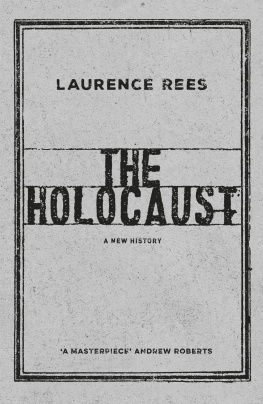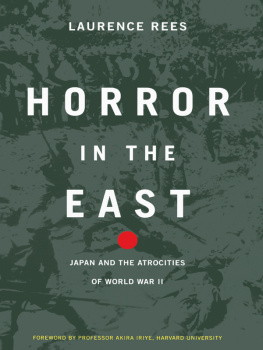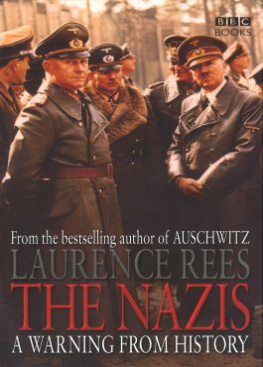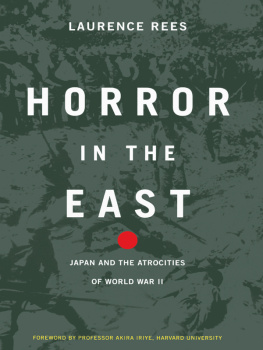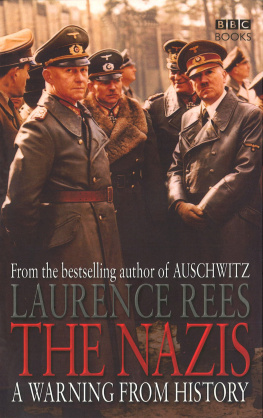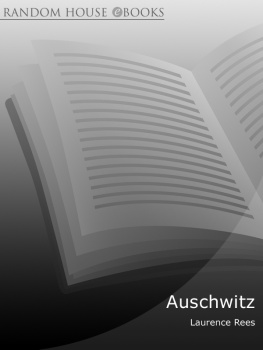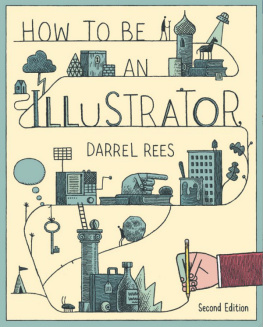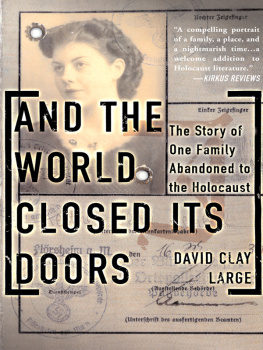Laurence Rees - World War II Behind Closed Doors: Stalin, The Nazis and the West
Here you can read online Laurence Rees - World War II Behind Closed Doors: Stalin, The Nazis and the West full text of the book (entire story) in english for free. Download pdf and epub, get meaning, cover and reviews about this ebook. City: New York, year: 2010, publisher: Pantheon Books, genre: History. Description of the work, (preface) as well as reviews are available. Best literature library LitArk.com created for fans of good reading and offers a wide selection of genres:
Romance novel
Science fiction
Adventure
Detective
Science
History
Home and family
Prose
Art
Politics
Computer
Non-fiction
Religion
Business
Children
Humor
Choose a favorite category and find really read worthwhile books. Enjoy immersion in the world of imagination, feel the emotions of the characters or learn something new for yourself, make an fascinating discovery.

- Book:World War II Behind Closed Doors: Stalin, The Nazis and the West
- Author:
- Publisher:Pantheon Books
- Genre:
- Year:2010
- City:New York
- Rating:5 / 5
- Favourites:Add to favourites
- Your mark:
- 100
- 1
- 2
- 3
- 4
- 5
World War II Behind Closed Doors: Stalin, The Nazis and the West: summary, description and annotation
We offer to read an annotation, description, summary or preface (depends on what the author of the book "World War II Behind Closed Doors: Stalin, The Nazis and the West" wrote himself). If you haven't found the necessary information about the book — write in the comments, we will try to find it.
World War II Behind Closed Doors: Stalin, The Nazis and the West — read online for free the complete book (whole text) full work
Below is the text of the book, divided by pages. System saving the place of the last page read, allows you to conveniently read the book "World War II Behind Closed Doors: Stalin, The Nazis and the West" online for free, without having to search again every time where you left off. Put a bookmark, and you can go to the page where you finished reading at any time.
Font size:
Interval:
Bookmark:
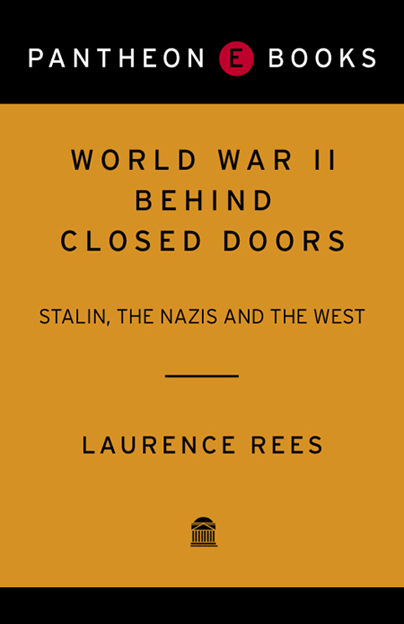
To Ian Kershaw
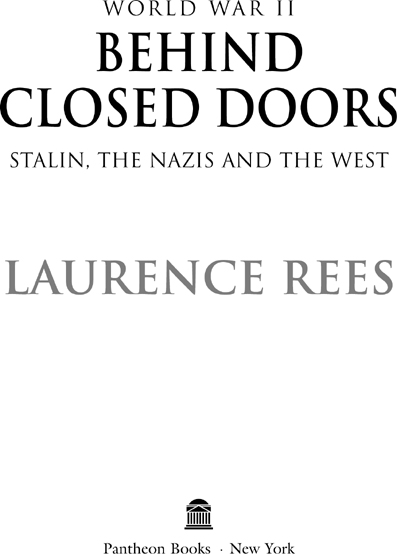
CHAPTER ONE:
CHAPTER TWO:
CHAPTER THREE:
CHAPTER FOUR:
CHAPTER FIVE:
CHAPTER SIX:
When do you think the Second World War ended? In August 1945 after the surrender of the Japanese?
Well, it depends how you look at it. If you believe that the end of the war was supposed to have brought freedom to the countries that had suffered under Nazi occupation, then for millions of people the war did not really end until the fall of Communism less than twenty years ago. In the summer of 1945 the people of Poland, of the Baltic states and a number of other countries in eastern Europe simply swapped the rule of one tyrant for that of another. It was in order to demonstrate this unpleasant reality that the presidents of both Estonia and Lithuania refused to visit Moscow in 2005 to participate in celebrations marking the sixtieth anniversary of the end of the war in Europe.
How did this injustice happen? That is one of the crucial questions this book attempts to answer. And it is a history that it has only been possible to tell since the fall of Communism. Not just because the hundred or so eye witnesses I met in the former Soviet Union and eastern Europe would never have been able to speak frankly under Communist rule, but also because key archival material that successive Soviet governments did all they could to hide has been made available only recently. The existence of these documents has allowed a true behind-the-scenes history of the West's dealings with Stalin to be attempted. All of which means, I hope, that this book contains much that is new.
I have been lucky that the collapse of the Eastern Bloc has permitted this work. It was certainly something I could never have predicted would happen when I was taught the history of the Second World War at school back in the early 1970s. Then my history teacher got round the moral and political complexities of the Soviet Union'sexpedient of largely ignoring it. At the time, in the depths of the Cold War, that was how most people dealt with the awkward legacy of the West's relationship with Stalin. The focus was on the heroism of the Western Allies on Dunkirk, the Battle of Britain and D-Day. None of which, of course, must be forgotten. But it is not the whole story.
Before the fall of Communism the role of the Soviet Union in the Second World War was, to a large extent, denied a proper place in our culture because it was easier than facing up to a variety of unpalatable truths. Did we, for example, really contribute to the terrible fate that in 1945 befell Poland, the very country we went to war to protect? Especially when we were taught that this was a war about confronting tyranny? And if, as we should, we do start asking ourselves these difficult questions, then we also have to pose some of the most uncomfortable of all. Was anyone in the West to blame in any way for what happened at the end of the war? What about the great heroes of British and American history, Winston Churchill and Franklin Roosevelt?
Paradoxically, the best way to attempt an answer to all this is by focusing on someone else entirely Joseph Stalin. Whilst this is a book that is fundamentally about relationships, it is Stalin who dominates the work. And a real insight into the Soviet leader's attitude to the war is gained by examining his behaviour immediately before his alliance with the West. This period, of the Nazi-Soviet pact between 1939 and 1941, has been largely ignored in the popular consciousness. It was certainly ignored in the post-war Soviet Union. I remember asking one Russian after the fall of the Berlin Wall: How was the Nazi-Soviet pact taught when you were in school during the Soviet era? Wasn't it a tricky piece of history to explain away? He smiled in response. Oh, no, he said, not tricky at all. You see, I didn't learn there had ever been a Nazi-Soviet pact until after 1990 and the collapse of the Soviet Union.
Stalin's relationship with the Nazis is a vital insight into the kind of person he was; because, at least in the early days of the relationship, he got on perfectly well with them. The Soviet Communists and the German Nazis had a lot in common not ideologically, of course, but in practical terms. Each of them respected the importance of raw power. And each of them despised the values that a man like Franklin Roosevelt held most dear, such as freedom of speech and the rule of law. As a consequence, we see Stalin at his most relaxed in one of the first encounters in the book, carving up Europe with Joachim von Ribbentrop, the Nazi Foreign Minister. The Soviet leader was never to attain such a moment of mutual interest and understanding at any point in his relationship with Churchill and Roosevelt.
It is also important to understand the way in which the Soviets ran their occupation of eastern Poland between 1939 and 1941. That is because many of the injustices that were to occur in parts of occupied eastern Europe at the end of the war were broadly similar to those the Soviets had previously committed in eastern Poland the torture, the arbitrary arrests, the deportations, the sham elections and the murders. What the earlier Soviet occupation of eastern Poland demonstrates is that the fundamental nature of Stalinism was obvious from the start.
So it isn't that Churchill and Roosevelt were unaware in the beginning of the kind of regime they were dealing with. Neither of them was initially enthusiastic about the forced alliance with Stalin following the German invasion of the Soviet Union in June 1941. Churchill considered it akin to a pact with the Devil, and Roosevelt, even though the United States was still officially neutral in the summer of 1941, was careful in his first statement after the Nazi invasion to condemn the Soviets for their previous abuses.
How the British and Americans moved from that moment of justified scepticism about Stalin to the point immediately after the Yalta Conference in February 1945 when they stated, with apparent sincerity, that Stalin meant well to the world and was reasonable and sensible, is the meat of this book. And the answer to why Churchill and Roosevelt publicly altered their position about Stalin and the Soviet Union doesn't lie just in understanding the massive geo-political issues that were at stake in the war and crucially the effect on the West of the successful Soviet fight-back against the Nazis but also takes us into the realm of personal emotions. Both Churchill and Roosevelt had gigantic egos and both of them liked to dominate the room. And both of them liked the sound of their own voices. Stalin wasn't like that at all. He was a watcher an aggressive listener.
It was no accident that it took two highly intelligent functionaries on the British side Sir Alexander Cadogan, Permanent Under Secretary at the Foreign Office, and Lord Alanbrooke, Chief of the Imperial General Staff to spot Stalin's gifts most accurately. They saw him not as a politician playing to the crowd and awash with his own rhetoric, but more like a bureaucrat a practical man who got things done. As Cadogan confided in his diary at Yalta: I must say I think Uncle Joe [Stalin] much the most impressive of the three men. He is very quiet and restrained. The President flapped about and the PM boomed, but Joe just sat taking it all in and being rather amused. When he did chip in, he never used a superfluous word and spoke very much to the point.
Font size:
Interval:
Bookmark:
Similar books «World War II Behind Closed Doors: Stalin, The Nazis and the West»
Look at similar books to World War II Behind Closed Doors: Stalin, The Nazis and the West. We have selected literature similar in name and meaning in the hope of providing readers with more options to find new, interesting, not yet read works.
Discussion, reviews of the book World War II Behind Closed Doors: Stalin, The Nazis and the West and just readers' own opinions. Leave your comments, write what you think about the work, its meaning or the main characters. Specify what exactly you liked and what you didn't like, and why you think so.

